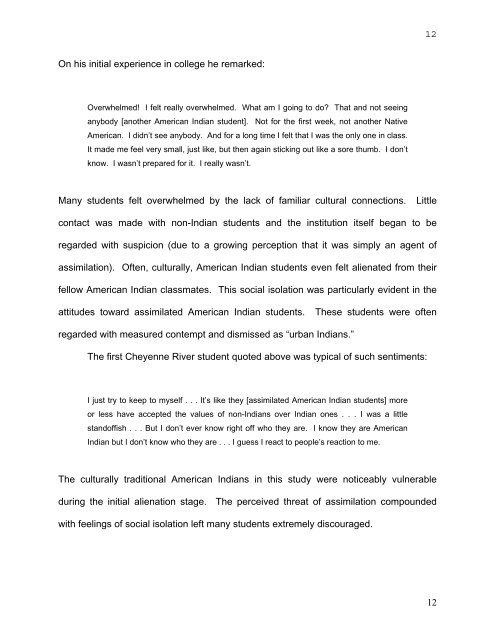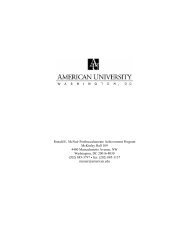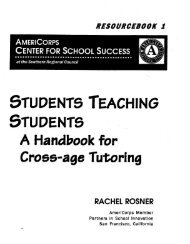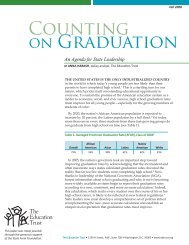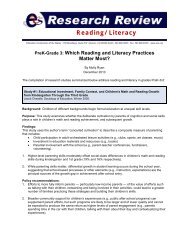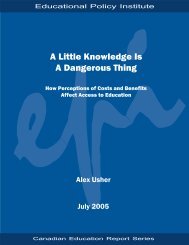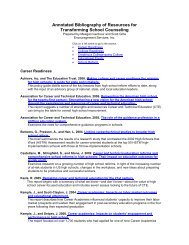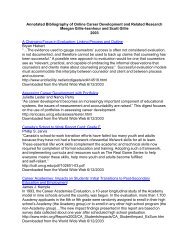Resistance Theory and the Transculturation Hypothesis
Resistance Theory and the Transculturation Hypothesis
Resistance Theory and the Transculturation Hypothesis
Create successful ePaper yourself
Turn your PDF publications into a flip-book with our unique Google optimized e-Paper software.
12On his initial experience in college he remarked:Overwhelmed! I felt really overwhelmed. What am I going to do? That <strong>and</strong> not seeinganybody [ano<strong>the</strong>r American Indian student]. Not for <strong>the</strong> first week, not ano<strong>the</strong>r NativeAmerican. I didn’t see anybody. And for a long time I felt that I was <strong>the</strong> only one in class.It made me feel very small, just like, but <strong>the</strong>n again sticking out like a sore thumb. I don’tknow. I wasn’t prepared for it. I really wasn’t.Many students felt overwhelmed by <strong>the</strong> lack of familiar cultural connections. Littlecontact was made with non-Indian students <strong>and</strong> <strong>the</strong> institution itself began to beregarded with suspicion (due to a growing perception that it was simply an agent ofassimilation). Often, culturally, American Indian students even felt alienated from <strong>the</strong>irfellow American Indian classmates. This social isolation was particularly evident in <strong>the</strong>attitudes toward assimilated American Indian students. These students were oftenregarded with measured contempt <strong>and</strong> dismissed as “urban Indians.”The first Cheyenne River student quoted above was typical of such sentiments:I just try to keep to myself . . . It’s like <strong>the</strong>y [assimilated American Indian students] moreor less have accepted <strong>the</strong> values of non-Indians over Indian ones . . . I was a littlest<strong>and</strong>offish . . . But I don’t ever know right off who <strong>the</strong>y are. I know <strong>the</strong>y are AmericanIndian but I don’t know who <strong>the</strong>y are . . . I guess I react to people’s reaction to me.The culturally traditional American Indians in this study were noticeably vulnerableduring <strong>the</strong> initial alienation stage. The perceived threat of assimilation compoundedwith feelings of social isolation left many students extremely discouraged.12


